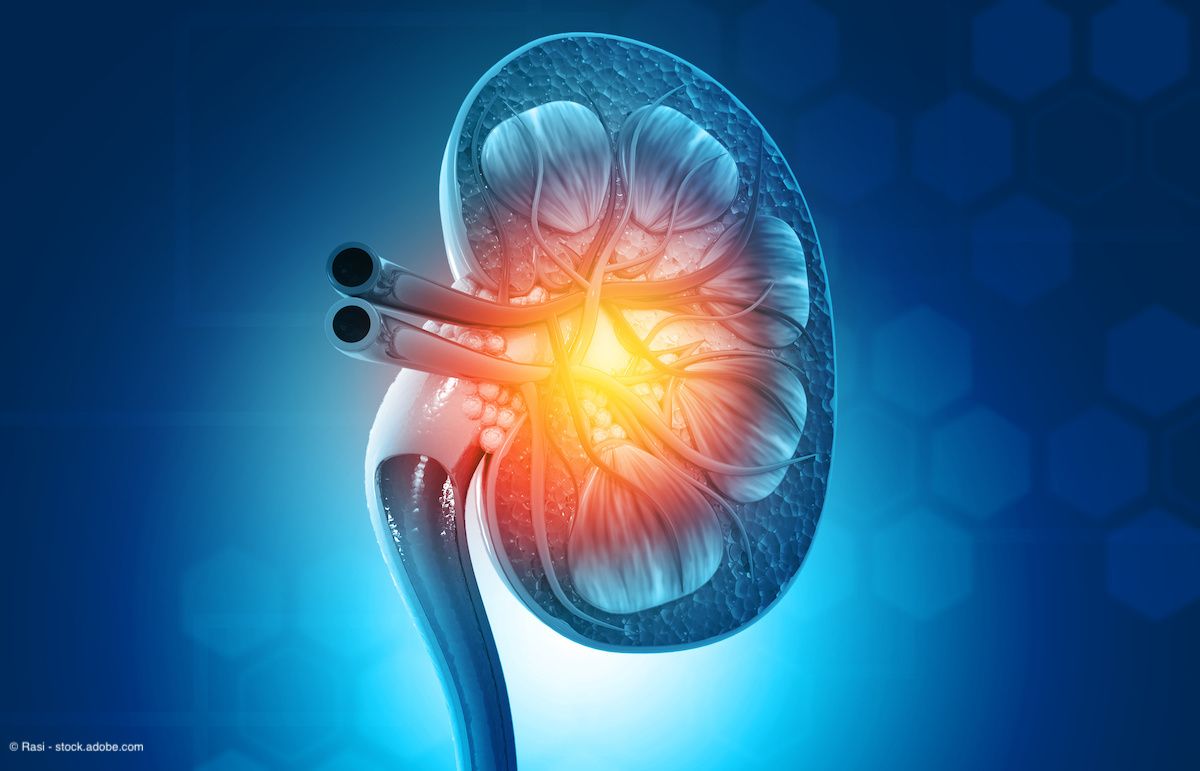News
Article
Personalized therapeutic approaches in ccRCC remain challenging
Author(s):
"As a kidney cancer community, we need to investigate these molecular subtypes prospectively in clinical trials to determine whether specific subtypes benefit from certain therapies or not," says David A. Braun, MD, PhD.
Recent data published in the journal Cancer Cell indicate that a machine learning approach can accurately classify clear cell renal cell carcinoma (ccRCC) tumors into distinct molecular subtypes, although the subgroups were not applicable as predictive biomarkers for treatment response.1
Data from the JAVELIN Renal 101 study showed that response rates to the avelumab plus axitinib regimen were higher than response rates to sunitinib across all molecular subtypes.

“The motivation for this study is really what we see in the clinic—we have patients with the exact same diagnosis of clear cell kidney cancer who received the same therapy but have dramatically different outcomes. We know there is tremendous biological heterogeneity among tumors, and we sought to understand whether we could leverage classic machine learning approaches to classify different subtypes of clear cell kidney cancer and whether those subtypes impact the likelihood of responding to therapy,” said senior author David A. Braun, MD, PhD, in a news release on the findings.2 Braun is an assistant professor of medicine (medical oncology) and of pathology and urology at Yale School of Medicine in New Haven, Connecticut.
Previously, investigators from the IMmotion151 trial (NCT02420821) identified 7 molecular subtypes believed to influence treatment response: (1) angiogenic/stromal, (2) angiogenic, (3) complement/oxidation, (4) T-effector/proliferative, (5) proliferative, (6) stromal/proliferative, and (7) small nucleolar RNA (snoRNA). In the IMmotion151 trial, tumors of cluster 4, 5, and 7 showed significantly better outcomes with atezoluzumab (Tecentriq) plus bevacizumab (Avastin) (an immune checkpoint inhibitor, ICI, plus an anti-angiogenic tyrosine kinase inhibitor, VEGF-TKI) vs sunitinib (Sutent, a VEGF-TKI), unlike those in clusters 1 and 2. Further, tumors in clusters 3 and 6 demonstrated a trend toward improved outcomes with the combination, through the trend did not reach statistical significance.
In the current study, the team, led by investigators at Yale Cancer Center, trained a machine learning model using data from the IMmotion151 trial. The model was then applied to 734 advanced RCC tumors from the phase 3 JAVELIN Renal 101 trial (NCT02684006) to classify them into 1 of the 7 molecular subtypes. Of the 734 tumors, 472 were primary tumors, 261 were metastatic tumors, and 1 was unspecified. Patients included in the JAVELIN Renal 101 trial received treatment with either avelumab (Bavencio) plus axitinib (Inlyta), an ICI plus a VEGF-TKI, or sunitinib.
Findings showed that the pattern of distinct somatic alteration and transcriptomic profiles for each molecular subtype in the IMmotion151 trial were concordant with those seen in the JAVELIN Renal 101 trial.
When assessing the association between IMDC risk groups and molecular clusters, the investigators found that tumors in the IMDC-favorable risk group were predominantly angiogenic tumors (clusters 1 and 2) in both the IMmotion151 and JAVELIN Renal 101 trials. Further, the IMDC-poor risk group tumors showed a prevalence of immune/proliferative signature tumors (clusters 4, 5, and 6).
However, although data from the IMmotion151 study showed that tumors of different molecular subgroups showed different responses to treatment, data from the JAVELIN Renal 101 study showed that response rates to the ICI plus VEGF-TKI (avelumab plus axitinib) regimen were higher than response rates to sunitinib across all molecular subtypes.
Further, progression-free survival (PFS) was improved in patients treated with avelumab plus axitinib vs those treated with sunitinib, irrespective of molecular subtype. However, the magnitude of improvement varied across clusters. Specifically, tumors of angiogenic/stromal (HR, 0.55; 95% CI, 0.31–0.97), complement/ oxidation (HR, 0.65; 95% CI, 0.43– 0.97), and T-effector/proliferative (HR, 0.54; 95% CI, 0.32–0.91) experienced significantly longer PFS with the avelumab plus axitinib regimen vs sunitinib.
The authors wrote, “Overall, the molecular clusters identified in IM151 have concordant clinical and molecular profiles in the JR101 dataset, providing additional insight for RCC biology and prognosis beyond traditional clinical risk stratification groups.”
However, they caution that more data are necessary before these clusters are used as predictive biomarkers for treatment responses to ICI plus VEGF-TKI regimens vs a VEGF-TKI alone.
Braun concluded in the news release,2 “We can use this machine learning approach to understand the subtypes of kidney cancer. But we still cannot say one treatment is better depending on the subtype you have—subtypes of clear cell kidney cancer appeared to have benefit from the use of immune checkpoint inhibition, a type of targeted therapy treatment. As a kidney cancer community, we need to investigate these molecular subtypes prospectively in clinical trials to determine whether specific subtypes benefit from certain therapies or not.”
References
1. Saliby RM, Labaki C, Jammihal TR, et al. Impact of renal cell carcinoma molecular subtypes on immunotherapy and targeted therapy outcomes. Cancer Cell. 2024 Mar 22:S1535-6108(24)00087-4. doi:10.1016/j.ccell.2024.03.002
2. Molecular subtypes of advanced kidney cancer matter for treatment response. News release. Yale School of Medicine. April 4, 2024. Accessed April 15, 2024. https://medicine.yale.edu/news-article/molecular-subtypes-of-advanced-kidney-cancer-matter-for-treatment-response/
Newsletter
Stay current with the latest urology news and practice-changing insights — sign up now for the essential updates every urologist needs.









